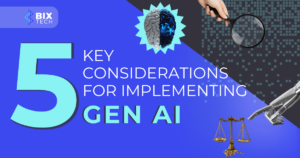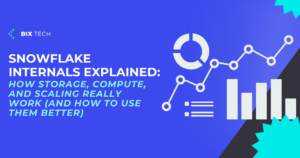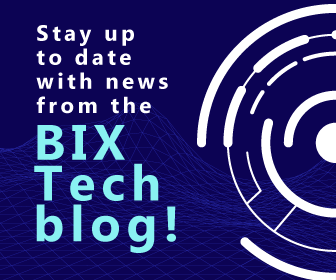Private Blockchains and IoT: The New Frontier for Security, Efficiency, and Cost Reduction

Sales Development Representative and excited about connecting people
The Real Risks Lurking in Smart Networks
Imagine a scenario straight out of a thriller novel: a hacker remotely manipulates a smart home, trapping someone inside and erasing all evidence. While it might sound far-fetched, the vulnerabilities in smart devices—ranging from baby monitors to smart locks—are very real. As connected technology becomes more prevalent in both homes and businesses, the gap between fiction and reality is closing fast. The critical question facing organizations today is whether they are truly prepared to protect these inherently vulnerable systems.
Private blockchains are rapidly emerging as a robust solution to address these challenges. In this article, we’ll explore how private blockchains can minimize disruptions, enhance compliance, reduce operational expenses, and, most importantly, restore trust in the rapidly expanding Internet of Things (IoT) ecosystem.
Privacy at the Core: Why Smart Devices Need Protection
The convenience of smart gadgets often comes with a hidden price: your personal data. From voice assistants that analyze every command to fitness trackers recording your daily movements, most users have no idea how much information they unwittingly share. A recent investigation by Which? revealed just how pervasive this data collection is. For example, security cameras and doorbells often send information to major tech companies, and even something as simple as a smart washing machine may demand your full name, date of birth, and detailed location.
In the United States, the lack of comprehensive federal data protection laws gives companies broad latitude in how they gather and use your personal information. This means your daily routines, sleep habits, and even the most common voice commands in your household can be tracked, analyzed, and potentially misused.
This is where private blockchains become game-changers. Unlike traditional data storage, a private blockchain distributes encrypted data across a decentralized network accessible only to authorized parties. Every interaction—whether it’s a voice command or a fitness update—is logged in an immutable ledger, ensuring transparency and security. Cryptographic authentication ensures that only approved users and devices can access or update this data, eliminating unnecessary intermediaries and giving control back to the consumer.
How Much Do Your Devices Know About You?
It’s easy to underestimate how much your smart devices know about your life. While targeted ads can be annoying, the risks go much deeper. Consider a garage door opener tied to location services: if compromised, a cybercriminal could learn your daily comings and goings. Even a fitness tracker could inadvertently reveal when you leave your home—valuable information for anyone with malicious intent.
Reinforcing IoT Security with Private Blockchains
A private blockchain offers a transformative approach to managing IoT data—delivering transparency, security, and control. Rather than sending sensitive user data to centralized corporate servers (where it might be repurposed or stored indefinitely), a private blockchain secures the information within an encrypted, decentralized ledger. This ledger is accessible only to the device owner and verified users.
Here are the key benefits:
- Transparent Data Management: End users can see exactly where their information is stored and who has access to it. This eliminates any ambiguity or hidden data-sharing with third parties.
- Strong Defense Against Unauthorized Access: Data is protected by advanced cryptography, so even if one node is compromised, the attacker cannot alter or extract personal information.
- Competitive Edge: Companies that prioritize data privacy can differentiate themselves in a crowded market, appealing to privacy-conscious customers who are willing to pay for secure solutions.
Ultimately, privacy in IoT should be the standard, not an optional feature. With private blockchains, manufacturers can guarantee that control over personal data stays with the user.
The Growing Strain on Smart Networks—and How Private Blockchains Help
Today’s typical home contains around 17 connected devices, from smart refrigerators to AI-powered pet feeders. While these devices promise greater convenience, they are putting immense pressure on Wi-Fi networks never designed for such heavy, continuous communication. When a baby monitor disconnects or a security camera drops offline, the consequences can be serious.
Network overload can result from too many devices constantly exchanging data with cloud servers. Rather than relying on costly and complex workarounds, private blockchains present a smarter, more scalable solution.
How Private Blockchains Enhance IoT Connectivity
Private blockchains allow devices to validate transactions locally, reducing the need to communicate with distant cloud servers. This peer-to-peer verification means systems remain responsive and resilient, even during temporary internet outages.
Think of it this way: relying solely on the cloud is like depending on a satellite for local traffic updates. If the signal fails, everything stops. A private blockchain, meanwhile, operates more like a network of local radio transmitters—if one goes down, the others keep the information flowing.
Key advantages of private blockchains for IoT networks include:
- Controlled Access: Only verified devices interact with the network, reducing unnecessary traffic and keeping connections fast and secure.
- Efficient Consensus Mechanisms: Modern private blockchains leverage algorithms like PBFT or Raft, enabling real-time processing without overburdening devices.
- Stable Infrastructure: Unlike public blockchains, private nodes are hosted in dedicated, high-availability environments, ensuring consistent performance even at peak usage.
If you’re interested in how leading-edge organizations are using these technologies to revolutionize business, check out our insights on exploring AI Proofs of Concept in business and how data science is reshaping modern enterprises.
Looking Ahead: Building Trust and Reducing Complexity with Private Blockchains
As the IoT landscape continues to evolve, the need for secure, efficient, and cost-effective solutions is more pressing than ever. Private blockchains offer a compelling path forward. By decentralizing control, strengthening authentication, and enabling transparency, they not only reduce the risks and complexity associated with smart device networks but also help organizations regain consumer trust.
Adopting private blockchains for IoT is not just a technological upgrade—it’s a strategic move that positions businesses for the future of smart, connected living. As privacy concerns mount and the number of connected devices climbs, now is the time to rethink how we protect the data that powers our daily lives.










